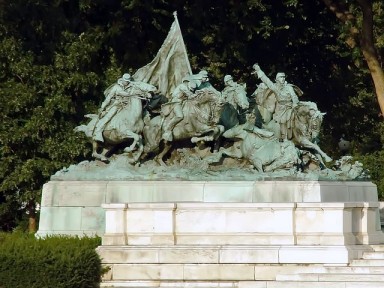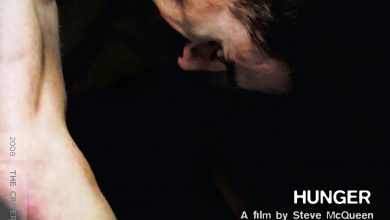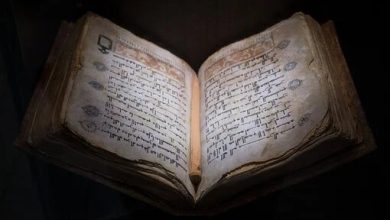
The Charge Of The Light Brigade was published in December of 1854 and deals with the themes of bravery and glory in the face of death. This poem narrates a real event that took place during the Battle of Balaclava in October of 1854. The bravery of the soldiers inspired Tennyson to memorialize them in a poem. The role of the Light Brigade of the British Cavalry in this battle is laid out in the poem.
The 55-line poem is divided into six stanzas and does not have a specific structure or rhyme scheme. The number of lines per stanza also varies, and this may be a reflection of the chaos of battle represented in the structure of the poem. This is a narrative poem with features of the ballad.
The Charge Of The Light Brigade | Summary And Analysis
The Charge Of The Light Brigade, Summary Lines 1-8
Half a league, half a league,
Half a league onward,
All in the valley of Death
Rode the six hundred.
“Forward, the Light Brigade!
Charge for the guns!” he said.
Into the valley of Death
Rode the six hundred.
The Light Brigade had just one and a quarter miles to ride before they reach the Valley of Death. This Valley of Death meant that the soldiers were riding their horses toward a fight that they were sure to lose. The Light Brigade was a part of the British Cavalry, and they rode horses and used lances or swords to fight. They were told to charge toward the guns of the opposing army, and hence charge straight to their death. Six hundred men of this brigade charged ahead at the command of their superior. The repetition of the cadence of “half a league” is reminiscent of the sound of horses galloping and the repetitious sound of their hooves on the ground. It also provides a sense of purpose or anticipation for the battle that they are so close to joining. Here, the valley of Death is a metaphor for the battlefield. Death is personified, and so is referred to with a capitalized first letter.
The Charge Of The Light Brigade | Summary, Lines 9-17
“Forward, the Light Brigade!”
Was there a man dismayed?
Not though the soldier knew
Someone had blundered.
Theirs not to make reply,
Theirs not to reason why,
Theirs but to do and die.
Into the valley of Death
Rode the six hundred.
They were commanded to charge forward toward the guns, and so they did. In reality, a senior officer had made a fatal mistake and sent them toward a battle they were not equipped to fight. This is what the poet means by “someone had blundered”. Yet, there was not one man in those six hundred soldiers who were dismayed. They charged ahead bravely as is expected of them. They are in no position to ask questions or choose the commands they listen to. As part of the cavalry, they follow every word told to them, even if it takes them to sure death.
The literary device anaphora is used in the repetition of “Theirs not to..” and this emphasizes the willingness of the soldiers to follow orders given to them. It reinforces that the soldiers have respect for their duty, even if it pushes them to partake in a suicidal mission.
The Charge Of The Light Brigade | Summary, Lines 18-26
Cannon to right of them,
Cannon to left of them,
Cannon in front of them
Volleyed and thundered;
Stormed at with shot and shell,
Boldly they rode and well,
Into the jaws of Death,
Into the mouth of hell
Rode the six hundred.
The courage of the soldiers is very clear here. They rode on their horses, carrying their swords. They are literally bringing a knife to a gunfight, yet they do not falter at all. They boldly ride toward the cannons that are shooting at them from every side. The “jaws of Death” and the “mouth of hell” are imagery used in this poem to represent them running into the maw of no return. The cannons to all sides of them show us how futile this battle was, and how they are outmatched by the opposition.
Repetition of “six hundred” is used in each stanza as the poet is emphasizing that all the six hundred soldiers willingly rode to their death for the honour of their country. They paid heed to the commands given to them and did not speak a word of dissent even though it was clear that a fatal mistake had been made. The readiness of the entire brigade to give themselves up at a moment’s notice is brought forward through the refrain “Rode the six hundred”.
The Charge Of The Light Brigade | Analysis, Lines 27-38
Flashed all their sabres bare,
Flashed as they turned in air
Sabring the gunners there,
Charging an army, while
All the world wondered.
Plunged in the battery-smoke
Right through the line they broke;
Cossack and Russian.
Reeled from the sabre stroke
Shattered and sundered.
Then they rode back, but not
Not the six hundred.
A sabre is a cavalry sword used in the battle. Their persistence and courage showed itself in their usage of swords against bullets. They did not retreat but instead fought back. The swords were flashing because of their confidence and agility as they fought against the Russians. They charged the army, while the world wondered why they were sent to their deaths.
Again, the Light Brigade did not fall back, they rode ahead and broke through enemy lines, passed the smoke from the guns, slicing apart their opponents. The Cossacks and Russians were split apart by the faultless movements of the Brigade. Once they fulfilled their duty and sent the Russians reeling, the soldiers rode back to their base. However, it was no longer all six hundred.
The Charge Of The Light Brigade | Analysis, Lines 39-49
Cannon to right of them,
Cannon to left of them,
Cannon behind them
Volleyed and thundered;
Stormed at with shot and shell,
While horse and hero fell.
They that had fought so well
Came through the jaws of Death,
Back from the mouth of hell,
All that was left of them,
Left of six hundred.
In their retreat, they were still subject to the guns and cannons of the enemies. They were shot at even when their backs were turned. The still-thundering cannons show us that the enemies had not been subdued even by the best efforts of the Brigade. So many heroes and horses had met a bitter death in that valley, but few had escaped Hell and come back after giving their all to the fight.
Six hundred and seventy-three men had ridden into battle, and just one hundred and ninety-five returned. That was all that was left of the six hundred. This brings about a feeling of dejection, as the men rode so bravely to battle, and returned battered, bruised, and unsuccessful. The fatal mistake was sending a brigade to the wrong battlefield. The blunder of one superior officer led to the deaths of hundreds of men. These deaths were honourable deaths on the battlefield, even though they were never meant to be there at all.
The Charge Of The Light Brigade | Summary, Lines 50-55
When can their glory fade?
O the wild charge they made!
All the world wondered.
Honour the charge they made!
Honour the Light Brigade,
Noble six hundred!
The glory of these men cannot be quantified, and the magnificence of their sacrifice will be known across the world. They charged without fear and without question into an inescapable battle, and they deserve to be honoured. The whole world wondered why they were sent in, and now the whole world wonders how they could ever be forgotten. The Light Brigade is honoured, all six hundred of them. Their bravery in following their duty as part of the cavalry is memorialized by Tennyson.
The Charge of The Light Brigade | About the Poet
Alfred, Lord Tennyson was born in 1809 in Somersby, England. His first collection of poems was published in 1830, and he swiftly shot to popularity, though many critics saw his verse as overly sentimental. He was named Baron Tennyson in 1884 by Queen Victoria.
He was a Poet Laureate under Queen Victoria from 1850-1892, the longest tenure of any poet laureate. He is one of the most popular British poets and is the ninth most quoted poet in the Oxford Dictionary of Quotations. Some of his well-known works are “Crossing the Bar” and “In Memoriam”. In 1829, his first poem, Timbuktu, got him the Chancellor’s Gold Medal at Cambridge.
He died on 6 October 1892, in Lurgashall, UK.



